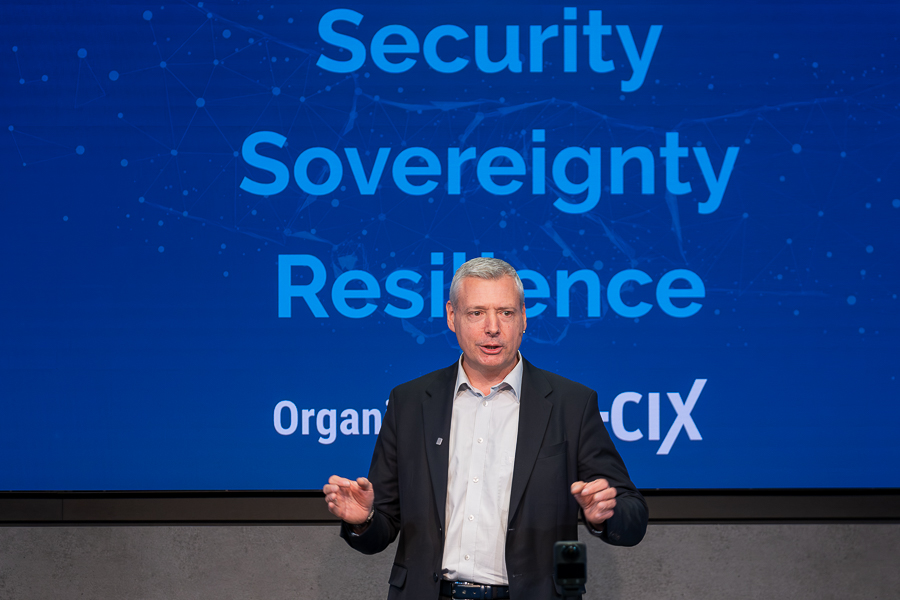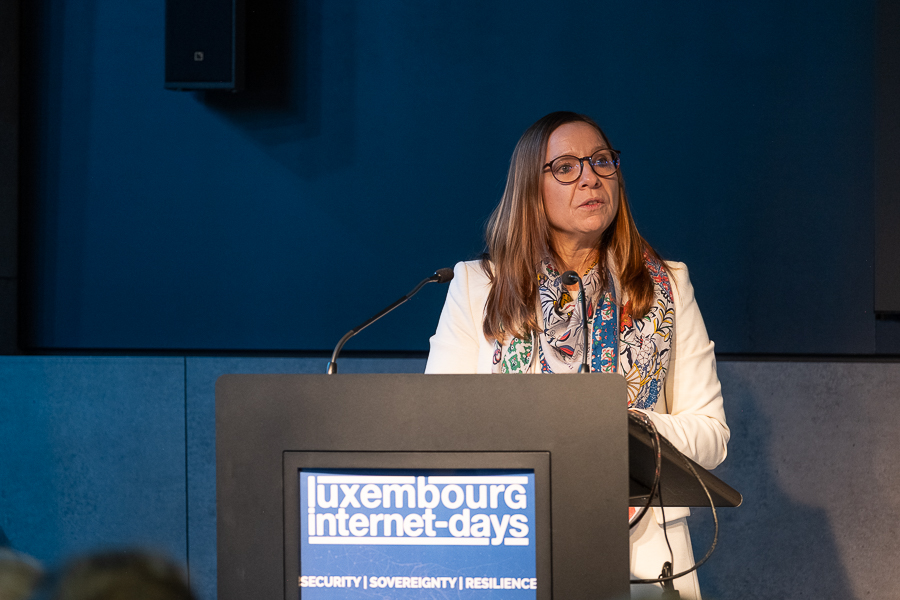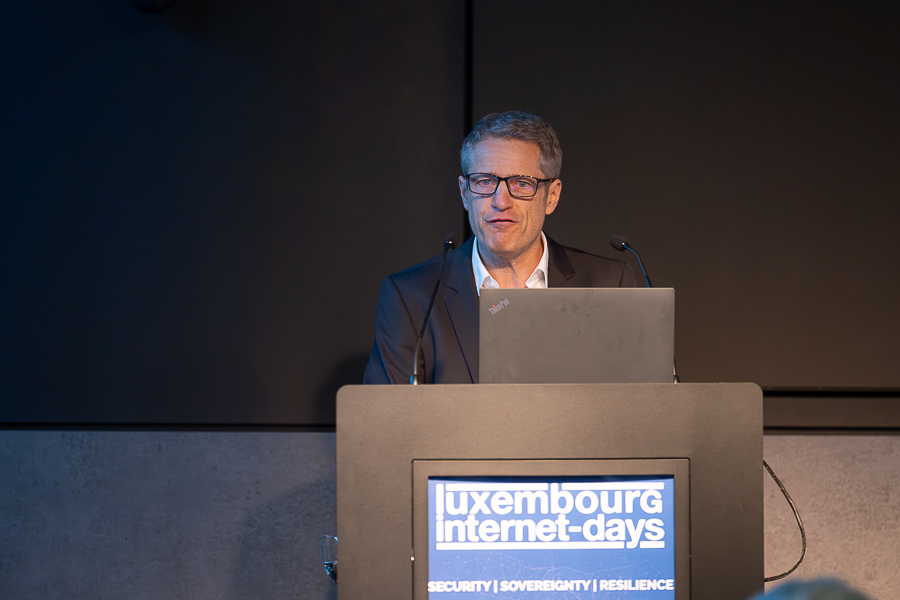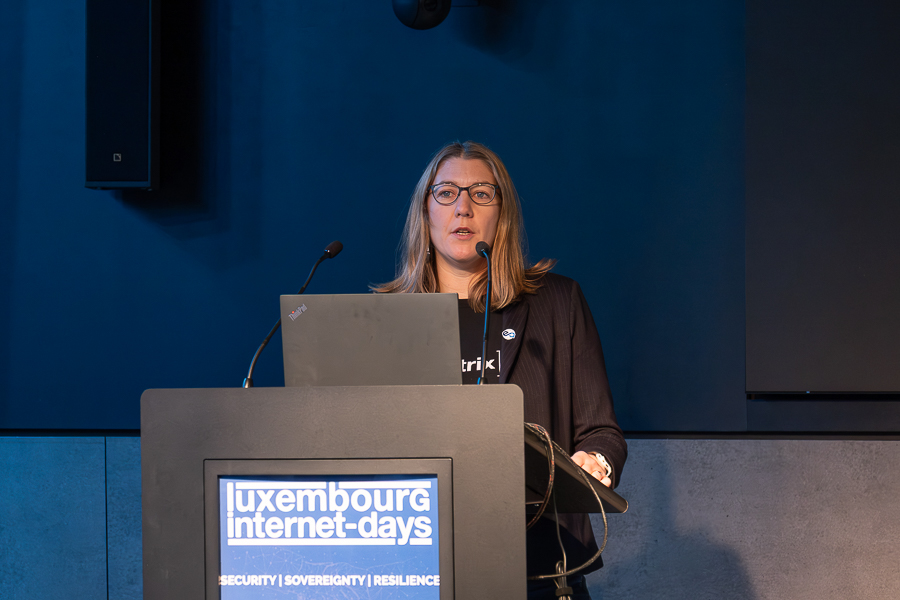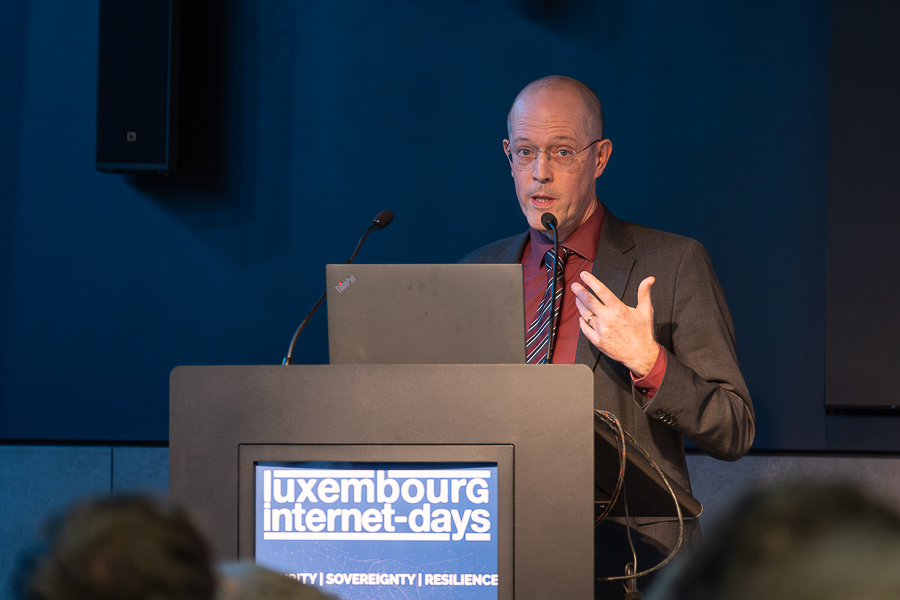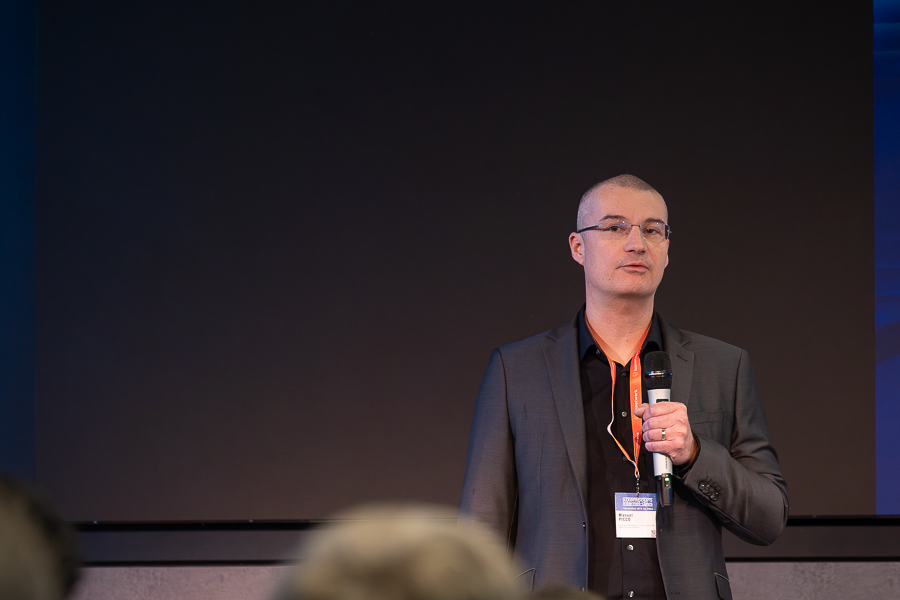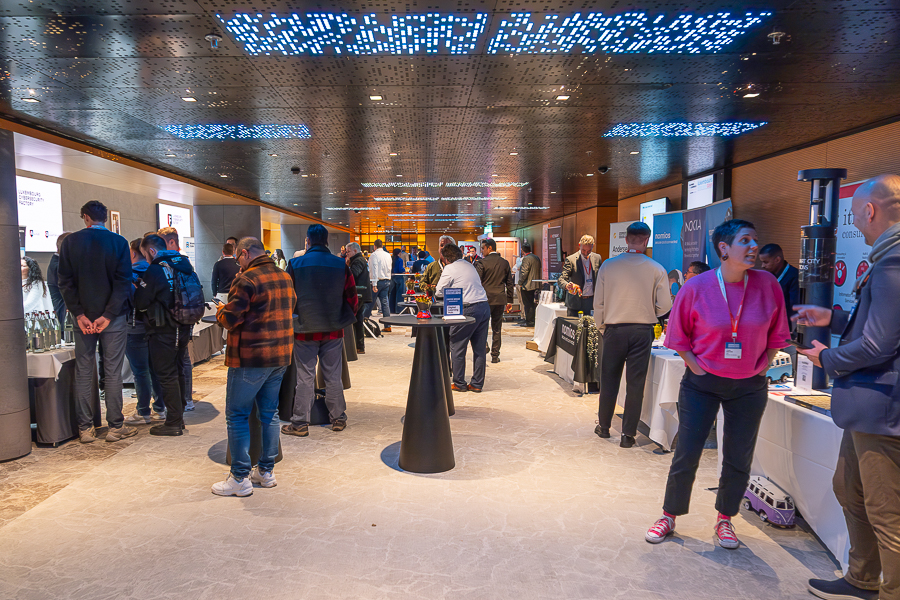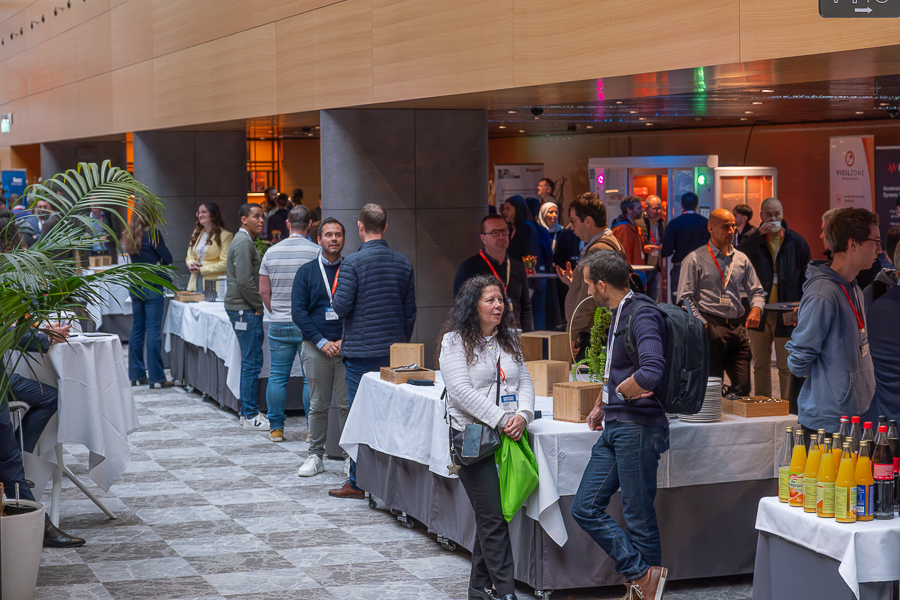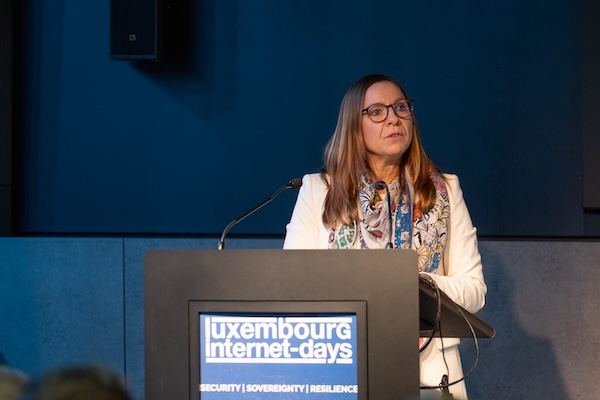 Stéphanie Obertin, Luxembourg Minister for Digitalisation;
Credit: Ali Sahib, Chronicle.lu
Stéphanie Obertin, Luxembourg Minister for Digitalisation;
Credit: Ali Sahib, Chronicle.lu
On Wednesday 19 November 2025, the Luxembourg Chamber of Commerce hosted the second day of the Internet Days 2025 conference at its premises in Luxembourg-Kirchberg.
The event featured a series of panel discussions and presentations on subjects such as cyber administration, cloud computing security, digital sovereignty and digital resilience, as well as speeches from Luxembourg Minister for Digitalisation Stéphanie Obertin and Chairman of LU-CIX Asbl (Luxembourg Internet Exchange) Claude Demuth.
The official opening of the second day was hosted by Peter Poehle, CEO & Founder at Media65.com and began with a keynote speech from Claude Demuth, who thanked the guests and attendees for their participation and support for the event. His speech touched on the key subjects of Internet Days 2025 - security, sovereignty, resilience - and stated: “They are not only technical terms, but also of today, they are deep concepts that define our future.” He continued: “In a world that is more and more divided, a strong European Union is a beacon of hope, a commitment to defend the values of democracy. I am convinced that there is no real freedom without sovereignty. And no sovereignty without technological sovereignty. It is time for Europe to start building its own future in Europe by creating a dynamic ecosystem of strong and sovereign technology.”
Manuel Picco, Head of Information Security at the Government IT Centre (CTIE), then gave a presentation on the rise of digital threats and how the CTIE contributes towards safeguarding digital sovereignty and resilience and the challenges ahead. He provided details on how important local technical infrastructure is to hosting critical services, the challenges of expansion in relation to changing needs and standards, the reliance of the CTIE on its sovereign partners in Luxembourg and reliance on human skills to stay ahead in the ever growing fight against cybercrime. He remarked: “Humans, like machines, bring real agility and creativity. Mastering their domains, they are able to understand, judge, react and innovate. They bring strategic foresight and contextual judgment. Major incidents, crises, instant definitions and foreseeing events. We need to be able to do that. We need to adapt and adapt. Agility is thus becoming a key factor also in resilience. As administration, it is our mission to provide the right framework to develop our teams and truly leverage our capabilities when it matters most.”
Amandine Le Pape, Co-founder and acting Managing Director of the Matrix.org Foundation, then gave a presentation on the benefits of an open-source approach to achieving the tree keys aspects of the conference (security, sovereignty and resilience) as well as the work of the Matrix.org Foundation, in particular its work with public sector bodies across Europe - including Luxembourg - and the European Commission, who are recommending the work and practices of the foundation in its report for the blueprint for digital sovereignty.
She said: “Open source stands for transparency, predictability and interpretability, which are the pillars of Europe's digital sovereignty. Open source standards create trusted infrastructure for secure data exchange. They reduce the dependency on proprietary platforms and strengthen Europe's competitiveness. There is no European sovereignty without sustainable open source.”
Gilles Massenceo of Fondation Restena followed with a presentation on the importance of optimal DNS (Domain Name System) infrastructure in ensuring security, resilience and redundancy of a country’s internet-systems and how ensuring the confidentiality of data and the availability of data during crises is at the root of a defining and implement an optimal DNS setup. He asked: “When you look at your activity, do you sit and think honestly about the long-term effects of your decisions and choices, especially on those decisions that touch on independence, on sovereignty and on your co-ordinance?” He emphasised: “This is not only for your own benefit, but it is also a benefit for the ecosystem, which you are part of and which you also rely on.”
The final speech was provided by Minister Obertin, who said: “Since 2016, the cloud infrastructure has been part of the state. Our cloud is entirely operated by the state. It offers the highest level of IT services and data protection to public administrations. […] In our national framework of interoperability, many public sector solutions are built on open-source software that meet European specifications. It guarantees the functionality, compatibility and sovereignty that are both accessible and completely in line with the ambitions of the law on interoperability in Europe. […] These initiatives reflect our approach to openness, transparency and collaboration.”
The event continued with a series of panel discussions on supply chain security, digital operational resilience for organisations in the European Union and Europe’s’ AI Act and concluded with a networking cocktail.

